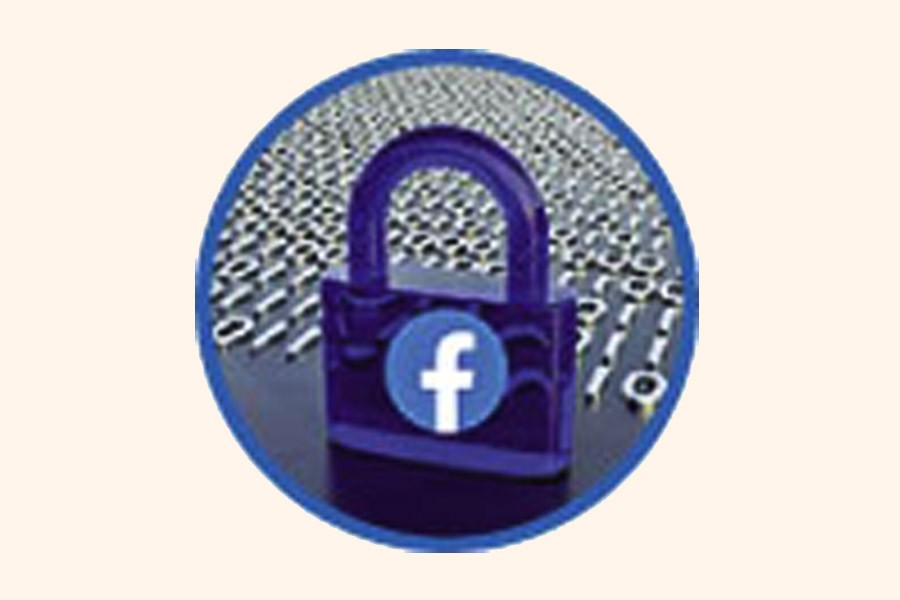
Published :
Updated :

Imagine a world without Facebook. The idea looks outlandish, but what if it really happens. A 17 years old company worth $1.0 trillion with 2.8 billion users comprising 60 per cent of the world's internet-connected people suddenly ceases to exist! To many not a bad prospect, either. But this is not going to happen, although Facebook may indeed be no more. If Mark Zuckerberg sticks to his plan of rebranding the company in a new name, the brand name Facebook will indeed meet its demise but reappear with a new name. He was supposed to announce the rebranded name last week.
Now the question is, does this have any connection with the recent disclosures of internal information by two whistleblowers? If not, what has prompted Zuckerberg to change the name of his milch cow? Rebranding is no guarantee for parrying the criticisms that have lately been levelled against his company. If the US Congress is convinced by the whistleblowers' complaints against his company's activities, he may be made to account for those. If it is found that commercial considerations have got the better of social responsibilities and business ethics, he may indeed be in for trouble.
True, social media sites can be used for humanitarian and innocent purposes, establishing friendly relations with like-minded people or rediscovering long lost friends or people and sharing moments and matters. But if abused, it can be extremely pernicious too, opening the gates of hell. Sure enough, social platforms cannot take responsibility of every post but its overall policy can have a control of the contents.
It is against this context, Facebook's business criteria have come under closer scrutiny. The recent communal attacks in this country also follow the 'hate speech, divisive political speech and misinformation' on Facebook and its other sister Apps. The problem with such social sites is that people do not hesitate to post unverified information and messages without considering the repercussions from the public. Few people now want to understand that the mainstream media have several stages of scrutiny before publishing news. Even discretionary power applied in case an explosive incident can have the potential to throw society or a community into total chaos or disrupt social order. Here comes the use of modern devices and technologies.
One common argument often put forward in defence of modern technologies is that they are neutral and it depends on how an individual user makes their use. After filing two whistleblower complaints with the US Securities and Exchange Commission by two former Facebook employees, the argument hardly looks as tenable as it used to be. First it was Frances Haugen, a 37-year-old data scientist who quit Facebook in disgust, brought a charge against Facebook for "tearing our societies apart and causing ethnic violence around the world". How? She complains the company incentivises "angry, polarizing, divisive contents". The latest complainant, like Frances Haugen, is also a member of the Facebook's integrity team, who claims that the company misled its investors about "dangerous and criminal behaviour on its platform, including Instagram, Whatsapp and Messenger".
In a bone-chilling revelation, Haugen referred to one of Facebook's internal studies, which shows how adversely Instagram impacts teenage girls. According to it, 13.5 per cent feels Instagram makes the thought of suicide worse, otherwise more compelling and 17 per cent were of the opinion that the App exacerbates eating disorder. Indeed, obsession with or involuntary submission to social media or computer games give a kind of bizarre instant gratification---one that compels those involved to neglect their health, hygiene and food. Side by side, these habits help develop low esteem about themselves.
These are serious allegations. On the one front, Facebook incites hatred, violence and divisiveness to go by the complaints made against it. On the other, it causes grievous harm to underage girls, maybe boys as well. What, however, usually escapes notice is that the immaturity in compulsive social site users continues to linger in their adulthood and they fail to face the real world convincingly and squarely.
Mark Zuckerberg has dismissed the charges brought against his company off-handed. But did he really sound convincing enough? He knows well enough that the business empire built on the overt or covert elements of conflicts inherent in the posts or messages ---which actually boost income---will lose if those are toned down or deleted. The lawyers of the whistleblowers will be arguing for stricter regulations for Facebook contents. Rumours and unverified contents should not only be curbed but also totally restricted. These problems are not country-specific but global and hence should be treated with equal seriousness everywhere.
The tragedy enacted in this country surrounding the Durga Puja is a grim reminder of the fallout of abuse of social media. True, social media like Facebook cannot be done away with but its responsible use has to be ensured. Mark Zuckerberg is not a willing party to ethnic conflicts or cleansing as has been staged in Myanmar but according to Frances Haugen, he knew how the junta misused Facebook against the Rohingya. A policy shift has been, she complains, made and the Civic Integrity of Facebook was dissolved. This, the other whistleblower contends, allowed Trump's hate speech to go unhindered. Whether the same was true for Myanmar junta's ethnic cleansing campaign is yet to be known.
nilratanhalder2000@yahoo.com


 For all latest news, follow The Financial Express Google News channel.
For all latest news, follow The Financial Express Google News channel.